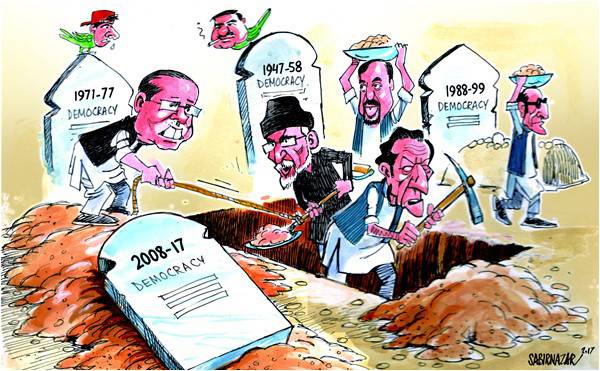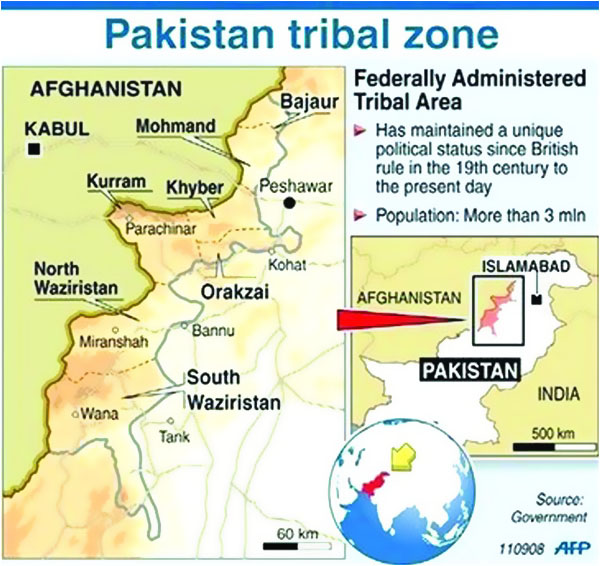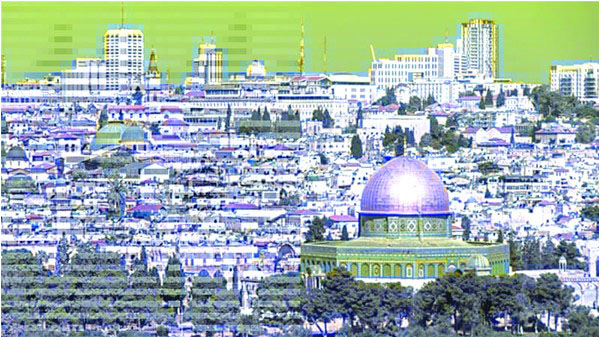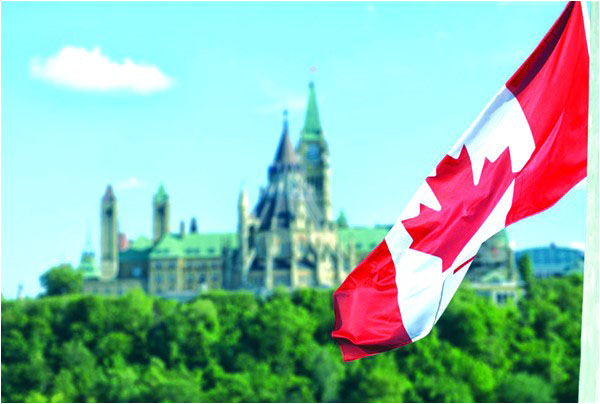
FATA status
Sir,
There are more than two options on changing the status of the Federally Administered Tribal Areas (FATA). One side, which seems to have support in Khyber Pakhtunkhwa and FATA, demands the merger. The other side argues for the creation of a new province or separate status for FATA. Supporters of a new province quite reasonably demand that the people of FATA should decide their fate in a referendum. Others suggest FATA be given special status as with Gilgit-Baltistan. Some argue to maintain the status quo.
The debate is driven by wishes, emotions and political interests. Consider the case for a separate province. FATA consists of seven administrative units or agencies along the Pak-Afghan border (Durand Line) and six frontier regions. Pakhtun tribes living in FATA have strong historical, economic and cultural links and even blood bonds with the Pakhtun in KP. In fact, they are the same people separated by a colonial-era administrative arrangement. The case for a separate province on the basis of a distinctive ethnic, cultural or political identity of the people of FATA is thus not strong. People living in Khyber Agency have deeper links with Peshawar than with the people of North or South Waziristan agencies, for example.

FATA is underdeveloped, closed off and inaccessible, and has been governed by the draconian FCR. Its people all face the same level of deprivation, discrimination and suppression. They are victims of war, lawlessness and violent crimes. These shared sufferings could be the basis for a separate identity in the form of a new province. But forming a new province on a shared history of victimhood wouldn’t be sustainable in the long run.
The creation of a separate province on the Pak-Afghan border could have strategic implications for Pakistan. Although there is no formal easing in the rights agreement between Afghanistan and Pakistan for the divided tribes living across the Durand Line, in practice the tribes have been using their perceived rights by crossing the border with little or no restrictions. A new province could complicate the situation, especially if relations between Afghanistan and Pakistan are not warm.
The 18th Amendment to the 1973 Constitution has significantly altered/reformed the political structure of the Pakistani state. Consequently, the nature of the relationship between the center and the provinces and among the provinces has changed. The changes through the 18th amendment have not yet been fully implemented. The federal and provincial governments are still holding discussions on devolution; there are disagreements. However, the principle of provincial autonomy has been accepted and adopted. Devolution has given the provinces more authority and autonomy. They can now enter into agreements with foreign firms and countries and bring in international investment. The provinces control their own resources. Forty-seven (47) subjects/ministries/departments previously with the federal government have been transferred to the provinces.
In this backdrop, it is unlikely at least for the time being, to establish a fully empowered new province on the Pak-Afghan border, particularly when the war continues in Afghanistan and Indian, US and other foreign forces are operating in the region.

A new province of the FATA region will have to deal with lot of contentious issues. Generation and distribution of revenues and resources will be on top. The new province would require a special status and full financial support until it develops its human and natural resources and starts generating revenues. With stronger provinces and a weaker center, it will be extremely difficult for the new province with little sources and revenues to get extra support at forums such as the Council of Common Interests and the National Finance Award where each province will fight over its share. If the new province will not be able to contribute to the revenue generation, it will be hard to get extra share in the resources.
With FATA as a new province there will be two Pakhtun provinces competing for revenues, resources and rights. This could give birth to rivalry, mistrust that may further divide the Pakhtun.
The creation of the new province will also change the composition of the Senate and other constitutional forums.
On the other hand, a merger will give the Pakhtun people a bigger say in Pakistan in terms of their political power, parliamentary strength, share in revenues and resources. People of FATA will have equal political and legal rights and they will be able to enjoy economic benefits of a bigger national entity.
KP has strong trade and economic relations with other provinces. There is economic interdependence. The people of FATA will also become part of these linkages if there is a merger.
Seven decades is not a long time to build a common national identity in a country made up of various nationalities and ethnic groups. Ethnic minorities complain they face discrimination in Pakistan. Their concerns are not baseless but despite that, imperceptibly, a fusion of cultures is underway in Pakistan. Now Pakhtun, Punjabi, Sindhi, Baloch and people of other nationalities share a level of common identity and have shared interests in Pakistan. Because of their administrative exclusion, the people of FATA are not part of the integration processes taking place in the country. A merger could end the isolation of FATA.
The merger will affect the number of seats in the KP Assembly. The composition of the NA and Senate will also change. In case of a merger, reorganization and restructuring several key provincial institutions and administration will be required. Federal and provincial funds and resources will be reallocated. These will be monumental tasks; if not handled with extreme care the province would face new challenges maintaining peace.
The merger would be successful only if the KP and federal governments created a framework and special conditions under which they will help the newly merged FATA regions to grow and develop at a faster pace. The social and economic development gap between FATA and the rest of the province and Pakistan has to be bridged through a well-structured and well-funded plan.
Some argue that FATA be given special status like Gilgit-Baltistan by introducing political and legal reforms and providing a special economic package for the region. This could be a less thorny option in the sense that it will not affect the composition of Parliament and other constitutional institutions of the state. The structure and composition of the KP Assembly and provincial institutions will also not change.
For giving FATA special status like GB, the federal government will have:
1: To replace the FCR,
2: Grant the people of FATA equal political and legal rights,
3: Create representative institutions in the region,
4: Empower those institutions to manage and oversee the change,
5: Provide financial support and commit resources on a long term basis.
There could be forces within Pakistan which might oppose the above options. They might argue in favor of maintaining the status quo and bringing small-scale or limited reforms to FATA’s administrative and political structure. They could say that national or strategic interests demand that the pace of change in FATA is kept slow and it should be carried out in phases.
Shiraz Paracham
Via email,
Jerusalem
Sir,
On December 10, 2017 Israel PM Netanyahu said during his visit to France that US president Trump has done justice in recognizing Jerusalem as Israel’s capital. As a result, the US is shifting its embassy from Tel Aviv to Jerusalem because, as per Netanyahu, Jerusalem has been the capital not only of the Jewish State of Israel for the last seven years but also of Jews for the last 3,000 years.
As far as the history of 3,000 years is concerned, by brazenly violating the terms of the Balfour Declaration of 1917 (and other subsequent League of Nation promises on trusteeship), present-day Israel (from where Palestinians have been driven out), has been justified mainly in the name of the Holocaust in which six million Jews were butchered in Europe during World War II. The Palestinians had nothing to do with the Holocaust.

Before 1917, Muslims were around 85.5% of the population, Jews 12% and Christians and others were 2.5% in Israel/Palestine. Before 1917 there was no movement or armed struggle by Jews in or outside Israel to take Israel from the Palestinians.
According to even the Old Testament, Israel does not belong to the Jews (rather the Jews left Egypt with the Prophet Moses and were asked to kill the then residents of and capture this ‘Promised Land’ of Israel). Now the Jews want to make Israel a Jewish State with 75% Jews and the want to leave the Palestinians in either a very small area of an unviable State of Palestine (West Bank and Gaza Strip) or as permanent refugees in other countries.
The media reports that presently the population of Israel is 8m in which 75% (6m) Jewish and there are 10.5m Palestinians (4.75m in Palestine the West-Bank, Gaza Strip and East Jerusalem and 1.75m in Israel and 4m registered refugees).
All of these Muslim Palestinians, like Jews, are legally entitled to remain in Israel/Palestine. This of course will put Palestinians in the majority in Israel/Palestine but this is the only justifiable remedy in response to the US and Israel, who have forgotten that the world community expects UN member countries to let their citizens from different religions live together peacefully.
The US, the self-proclaimed leader of the free world, is thus when in this 21st century of secularism, it supports a theocratic Jewish State of Israel. (Therefore two-State solution based on religion should be discarded in favour of a one-State solution)
The world community should realize the changes that have taken place in human rights. The West (US and its allies, the European Christian countries) have bid farewell to human rights whereas China of late has started taking interest in the human rights of refugees. China recently took keen interest in the rehabilitation of Muslim Rohingyas and is talking to Myanmar and Bangladesh to sort out this problem. Therefore Muslims and others should persuade the UN permanent member China to take an interest in the rehabilitation of Palestinian refugees in Israel/Palestine.
Muslims all over the world should stop paying lip service to the cause of Palestinians and do something effective to solve the chronic Israel-Palestine problem. Indian Muslims (both Sunnis and Shias, the citizens of a secular and democratic country of 1.3 billion people) should take the lead to organize a meeting in India in which people from all over the world, especially Muslims, who believe in justice for Palestinians, should be invited. This problem can be solved permanently and in a non-violent manner, which will globally project the true image of Islam (as a peace-loving religion) which has been sullied by jihadis all over the world.
Due to the immense bloodshed and sufferings in the AfPak region, Muslims especially Sunnis (as Shias are already consolidated through Iran) have been trying to consolidate globally but have not succeeded. First it was through the Caliphate of ISIS of Baghdadi, which was bloodthirsty and anti-human rights and hence failed. Then it was the Sunni NATO of 40 Sunni countries sponsored by Saudi Arabia. Therefore the rehabilitation of Palestinians is a much more effective and peaceful goal.
Hem Raj Jain,
Bengaluru, India.
Parent-child bond
Sir,
“Before I got married, I had six theories about bringing up children. Now I have six children and no theories,” said John Wilmot.
Parenting is a tough job. Children’s physical and emotional status as well as their social and cognative development greatly depends on their family dynamics. When children have a strong, positive relationship with their parents, they are more likely to succeed in school.
A strong parent-child connection makes parenting easier since children who feel more connected to their parents are more inclined to want to listen, help and follow directions. These children are more willing to talk about problems.

Some tips to deepen the bond are: Be a kid and play; Let your kid see your silly side. Give night hugs and tell them stories; have meals at the table with the family; turn the TV off. Eating together sets the stage for conversation and sharing of thoughts, problems and love.
Respect the children’s choice. Take help from your kids; children feel powerful when they help and give their opinions. Teach faith and spirituality and allow them time to ask questions and answer them honestly. Express your love.
Hamdosh Hussain Khan,
Via email.
Canadian Muslim ordeal
Sir,
An innocent law-abiding Canadian Muslim family is seeking compensation for seven years of being professionally, financially and emotionally devastated by institutions of the Canadian government including the Royal Canadian Mounted Police, Ottawa Police, Ottawa Paramedics and CSIS.
It maintains that the Canadian government has been coercing Muslim Canadian government employees to portray their Muslim relatives as terrorists. This happened to this family when they say the government creatively and successfully portrayed the couple as terrorists by using countless people, including government employees, Tasneem Kawsar and her husband Abu Rahman, who are relatives and used to be close friends with the couple.
The family maintains that these authorities knew that the family was law-abiding and innocent.
It provided Minister Ralph Goodale with evidence as well. It now seeks compensation given that the Government of Canada has reached settlements with many Canadian Muslims and paid them a multimillion-dollar compensation package in 2017.
The family also urges an investigation into an Ottawa General Hospital’s eye doctor, a Cisco manager in Ottawa, lawyer Paul Champ, government school teacher Nadine Saikaley. Government school teacher Nadine Saikaley restrained the couple’s daughter, a student, from volunteering in an Asian language class in the summer and at Farley Mowat Public School in July 2017. Saikaley did this on the basis of providing false and untrue information.
The couple’s daughter has been harassed in school over false accusations that she has not completed her immunization which is untrue.
The couple also received a $200 monthly water bill and eviction notice despite never missing any bill or any rent any time since they starting living independently in 1994. They sent the Mayor of Ottawa an email about the $200 monthly water bill and contacted Ottawa City Hall about their daughter’s immunization-related harassment at school.
The family fears that it has been under surveillance.
Recent replies sent via email to the couple by Minister Ralph Goodale, and Minister of Justice and Attorney General of Canada Jody Wilson-Raybould did not solve the problem.
British Columbia Supreme Court Justice Catherine Bruce concluded on the conduct of one Muslim couple’s ordeal manufactured by more than 200 RCMP that: “The police engaged in a multifaceted and systematic manipulation of the defendants to induce them into committing a terrorist offence” (Guardian July 29, 2016). “This was a clear case of police-manufactured crime”.
Mohammad Barkat Khan,
Ottawa, Ontario.

